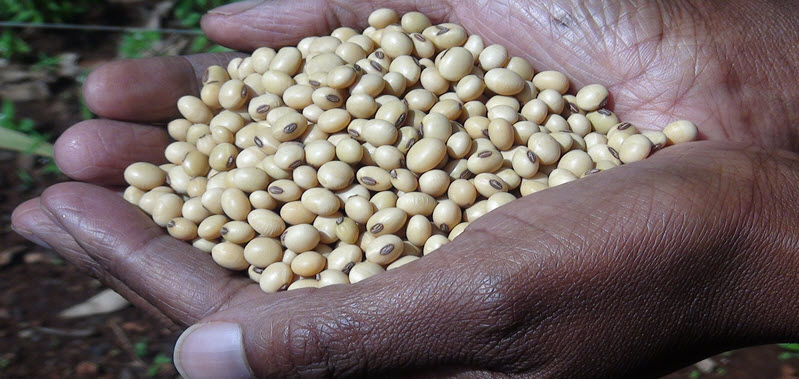Microbes are essential for the health of living organisms, whether they be in humans, animals or in the soil. In recent years, soil microbial communities have emerged as a hot topic of research, because of the role they play in healthy, productive soil – essential for growing food and feeding a predicted population of nine billion in 2050.
On World Food Day, 16 October, we take a look at a preprint posted on agriRxiv (pronounced agri-archive and previously known as AgriXiv) on Rhizosphere microbial communities explain positive effects of diverse crop rotations on corn and soybean performance authored by M. S. Benitez, P. Ewing, S. L. Osborne and R. M. Lehman. The soil microbiome is an important and popular subject in the academic community, not least because soil health has big implications for the future of food security and the food value chain.
This preprint focuses on the rhizosphere – the area of soil influenced by plant roots – and states that, “In agricultural systems, crop rotation diversity influences soil microbial communities and often increases crop productivity. Yet the specific contributions of microorganisms to crop rotation benefits are unknown.”
To investigate the benefits of microorganisms to crop rotation, the authors studied the rotation of two staple crops – corn (Zea mays L.) and soybean (Glycine max L.) – over difference periods of time with varying crop sequences, helping them to learn more about the links between crop rotation, microbiomes and yield. They hypothesized that the microbial communities in the rhizosphere would predict the productivity of a crop, depending on the level of crop rotation diversity and previous crops in the soil.

They sampled the soil at seedling and flowering stages, assessed rhizosphere bacterial and fungal communities, plant tissue nutrients, aboveground biomass, and yield.
Their preprint revealed interesting results including that corn and soybean yields were larger in more diverse rotations and with different crop legacies.
The researchers conclude that continued innovation in agricultural management is necessary to reduce the environmental impacts of agriculture while continuing to meet global food demands. They point out that microbial activity may support these goals.
However, they also conclude that significant challenges remain, notably, “Quantifying the agronomic significance of changes in microbial communities and developing approaches to monitor these communities such that outcomes can be predicted.”
Nevertheless, the preprint concludes that the results will help to incorporate microorganisms into the design and monitoring of cropping systems, and ultimately support the sustainable intensification of agriculture, that is to say, the ability to grow more from the same amount of land – something that will become essential as the climate warms and less arable or farming land is left available to cultivate.
The use of preprints (pre-peer reviewed versions of scholarly papers) can bring fast and valuable insights into agricultural science. The use of preprint in agriculture has accelerated in the last few years and, as part of this trend, CABI relaunched agriRxiv in 2020 as a platform for posting preprints. agriRxiv makes preprints across agriculture and allied sciences available to researchers and gives those who wish to share their papers online an opportunity to gain valuable feedback before submitting a final version to a journal and formal peer-review.
If you are interested in posting a preprint on agriRxiv, click here and scroll down to Submission Guidelines to learn how.
Click on the link to read the preprint in full: Rhizosphere microbial communities explain positive effects of diverse crop rotations on corn and soybean performance
Need help with editing, translating or disseminating and sharing your paper? Click here to learn about CABI’s Author Services.
Interested in submitting your paper to CABI’s journal, CABI Agriculture and Bioscience. Click here to learn more.
Click on the link to learn more about the CABI-led Africa Soil Health Consortium.
Click on the link to see CABI’s books on soil.
Related News & Blogs
‘Under the microscope’ to mark World Microbiome Day: CABI’s work in the field
To mark World Microbiome Day 2025 (Friday 27 June), CABI takes a look back at its recent work – putting the microbiome ‘under the microscope’ to see how this community of micro-organisms live together in a particular ecosystem where humans, animals, an…
27 June 2025




